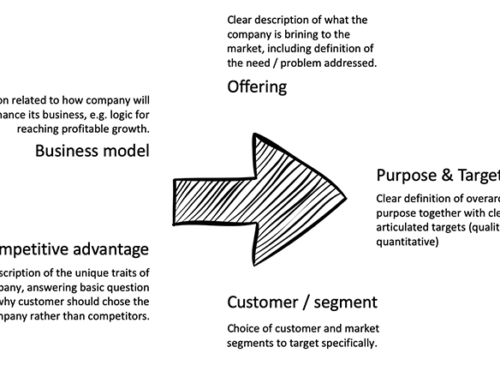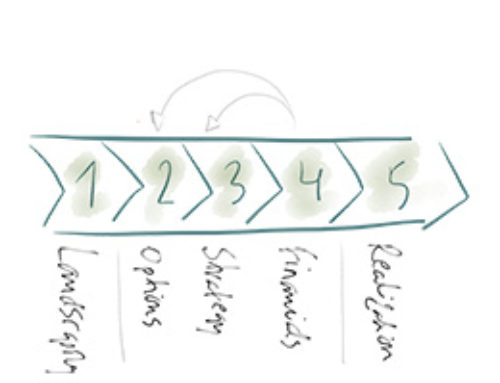For some reason, as soon as somebody is talking about strategy or just anything even remotely related to strategy, the game of chess is used as a metaphor. Players who want to win a game of chess clearly need to think hard; perhaps this fact has driven the adaptation of chess as a metaphor for strategy. At 2by2 we however believe that chess is a pretty poor metaphor for strategy, there are at least seven strong arguments that proves our point.
 1. Players
1. Players
Number of players in chess is limited to 2; number of players in business is unlimited
2. Stakeholders
Apart from yourself there are no other stakeholders to consider in chess; in business you need to consider many other stakeholders: shareholders, customers, employees …
3. Playing field
The chess board is strictly defined and limited to eight columns and eight rows, in total 64 squares. In business the playing field is loosely defined and pretty much without limitations, every player defines the squares on their own.
4. Rules
The game of chess has very strict rules, e.g. for how you are allowed to move the pieces around on the board. In business there are no firm rules of the game; only few legal limitations that you might need to consider when making your move.
5. Evolution
When playing chess, every new game starts from scratch. In business industries evolve constantly over time and few have had the opportunity to join an industry from its birth.
6. Resources
The game of chess always starts with a fixed set of resources where both players are given 16 pieces: one king, one queen, two rooks, two knights, two bishops, and eight pawns. Resources typically decrease as the game goes on and only way to increase resources is through pawn promotions. In business, resources can vary greatly between different players, even from start, and the successful ones typically enjoy growth.
7. Transparency
In the game of chess the players can easily survey the whole playing field; the chess board with its fixed number of 64 squares and with a mix of white and black pieces offers great transparency to anybody playing the game or to those only observing the game. In business the playing field is typically much less transparent and pieces come in all different colors and forms. Few players – if any – will have the ability to overview all of the squares in business.
Metaphors are often a powerful tool for explaining complex concepts. In the strategy case however, we believe that the chess metaphor might have conveyed an unfortunate picture of strategy: only 2 players, no stakeholders, strictly defined playing field, strict rules, always starting from scratch, fixed amount of resources to start with and a playing field that is easy to survey. Strategy is not at all like chess, actually quite the opposite; strategy is about defining how you should compete in a complex business environment, a business environment that holds several players, has few rules, no boundaries and is difficult to survey.
It is about time we find a new metaphor for strategy!





Rule 8?
Absolute win or loss.
In the game of chess the only aim is to win over your competitor by crushing him or her utterly. In business you often partner with other players to achieve competitive advantages. Winning is measured in relative terms as who has created the most value, while blatantly annihilating your competition often carries negative consequences.
Noak,
Thank you for your comment and for contributing with another argument on why Chess might not be the ultimate metaphor for Strategy. I agree with your view, business tends to be somewhat more complex; sometimes your competitors becomes your partners and sometimes your partners becomes your competitors.
Regards,
Jonas
One can always pick out a few arguments which contradict a metaphor. Not least since the metaphor, in this case, does not intend to paint the whole picture but only specific pieces of business life. It should therefore be just as easy to pick out a few good arguments for using chess as a metaphor for business. Wonder what those arguments would look like…
Allan,
I agree that it is easy to pick a few arguments to kill just any metaphor. My issue with this specific metaphor is that it is very easy to find a lot of arguments against it(not just a few) and somewhat harder to find the ones supporting it.
Regards,
Jonas